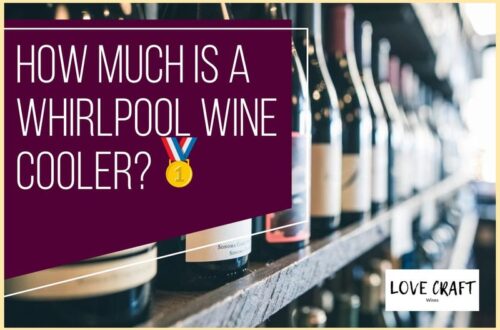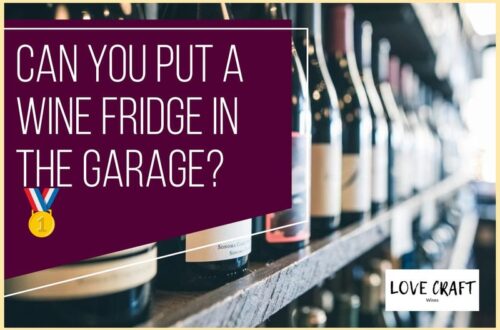Did you know that a single glass of wine can contain as much sugar as a donut? That’s right, wine can be a sneaky source of added sugars that can contribute to weight gain, inflammation, and other health issues.
However, not all wines are created equal when it comes to sugar content. If you’re someone who enjoys a glass of wine but wants to watch your sugar intake, you may be wondering what the lowest sugar content wines are.
In this article, we’ll explore the different types of wine and their varying sugar levels, as well as highlight some of the lowest sugar red and white wines on the market. Plus, we’ll delve into the health benefits of choosing low sugar wines and how they can fit into a balanced and healthy lifestyle.
So, whether you’re a wine enthusiast or just looking to make healthier choices, keep reading to discover the best low sugar wines for you.
Table of Contents
Understanding Sugar Content in Wine
So, you’re curious about how much sweetness is in your glass of vino? Let’s chat about understanding the sugar levels in different types of wine.
The sugar content in wine is determined by the amount of residual sugar left after the wine fermentation process. This residual sugar is the remaining natural grape sugar that wasn’t converted into alcohol during fermentation.
The sweetness perception in wine is subjective and varies from person to person, which is why there are different classifications for wine sweetness levels. Wine sweetness levels range from dry to sweet. Dry wines have the lowest sugar content, while sweet wines have the highest. Semi-sweet wines fall in between these two categories.
The sugar levels in wine are measured in grams per liter (g/L) and can range from 1 g/L to over 200 g/L. Now that you have a basic understanding of the sugar levels in wine, let’s dive into the different types of wine and sugar levels.
Types of Wine and Sugar Levels
As you explore the different types of wine, you’ll find that some varieties are sweeter than others. This is because of the wine fermentation process, where yeast converts grape sugars into alcohol.
Sweet wines have a higher residual sugar content than dry wines, which have little to no sugar left after fermentation. If you prefer a drier taste, look for wines labeled as dry or extra-dry, while those labeled as sweet or semi-sweet will be more sugary.
When it comes to exploring the lowest sugar red wines, you’ll want to look for varieties that are known for their dryness. Pinot Noir, for example, is a popular red wine that is typically low in residual sugar, making it a good option for those seeking a drier taste.
Other red wines that are typically low in sugar include Cabernet Sauvignon, Merlot, and Shiraz. Keep in mind that the sugar content of a wine can vary depending on the brand and region it comes from, so it’s always a good idea to check the label or ask a wine expert for recommendations.
Exploring the Lowest Sugar Red Wines
Looking for a drier taste in your red wine? Check out varieties like Pinot Noir, Cabernet Sauvignon, Merlot, and Shiraz that are known for their dryness and offer a range of flavors and aromas to explore.
These wines are produced through a wine fermentation process that results in the conversion of sugar into alcohol, leaving little to no residual sugar in the wine. This makes them a good choice for those who want to avoid high sugar content in their wine or who are looking for sugar-free wine alternatives.
Pinot Noir, for instance, is a medium-bodied red wine with low tannins and a light color. It has flavors ranging from red cherry to strawberry, and a subtle aroma of earthy notes.
Cabernet Sauvignon, on the other hand, is a full-bodied wine with high tannins and a deep red color. It has a rich flavor profile that includes blackcurrant, vanilla, and tobacco, with a strong aroma of black fruits.
Merlot is a medium-bodied wine with a smooth texture and flavors that range from black cherry to plum. It has a pleasant aroma of red fruits and herbal notes.
Lastly, Shiraz is a full-bodied wine with a dark color and bold flavor profile. It has notes of blackberry, pepper, and spices, with a strong aroma of black fruits and oak.
Transitioning to discovering the lowest sugar white wines, you can explore varieties like Sauvignon Blanc, Chardonnay, Pinot Grigio, and Riesling.
These wines are known for their crisp, refreshing taste that is perfect for summer or as an appetizer. Stay tuned to learn more about these wines and their unique characteristics.
Discovering the Lowest Sugar White Wines
You’re ready to explore the world of crisp and refreshing white wines that offer a range of unique characteristics and flavors.
When it comes to low sugar white wines, there are several varietals to choose from. One popular option is Sauvignon Blanc, which is known for its herbaceous and grassy notes. This wine is typically fermented dry, meaning that there is little to no residual sugar left in the final product.
Another great choice is Pinot Grigio, which is light and refreshing with citrus and apple flavors. Like Sauvignon Blanc, Pinot Grigio is usually fermented dry, resulting in a low sugar content.
Chardonnay is another white wine that can be low in sugar, depending on the fermentation process. Some winemakers choose to ferment Chardonnay in stainless steel tanks, which can result in a dry, crisp wine with little residual sugar. Others may opt for oak barrel fermentation, which can impart a slightly sweeter taste to the wine. If you’re looking for a truly low sugar Chardonnay, be sure to check the label for information on the fermentation process.
With so many options available, you’re sure to find a delicious white wine that fits your tastes and dietary needs. And, as you’ll see in the next section, there are plenty of health benefits to enjoying low sugar wines.
Health Benefits of Low Sugar Wines
Enjoying white wines that are low in sugar can have a range of health benefits, making them a great choice for those looking to indulge in a guilt-free glass of vino. Drinking low sugar wines can help you reduce your overall sugar consumption and promote a healthier lifestyle.
In addition, these wines can also provide you with a range of other health benefits that you may not be aware of. Here are some of the benefits of drinking low sugar white wines:
- Lower calorie intake: Low sugar wines typically contain fewer calories than their high sugar counterparts, making them an excellent choice for those watching their weight.
- Lower risk of obesity: Excessive sugar consumption can lead to weight gain and obesity. By drinking low sugar white wines, you can reduce your risk of developing these conditions.
- Reduced risk of heart disease: High sugar consumption has been linked to an increased risk of heart disease. By drinking low sugar wines, you can reduce your risk of developing this condition and promote overall heart health.
Overall, drinking low sugar white wines can provide you with a range of benefits, from reducing your sugar intake to promoting overall health and wellness. While consumption limitations should still be considered, incorporating these wines into your diet can be a smart choice for anyone looking to live a healthier lifestyle.
Frequently Asked Questions
What are some common misconceptions about sugar content in wine?
Step into the world of wine and let’s debunk some myths about sugar content.
You may have heard that the darker the wine, the higher the sugar content. But did you know that the color of the wine has nothing to do with its sweetness?
In fact, there are many factors that determine a wine’s sugar content, including the grape variety, the climate, and the fermentation process. Nutritional information can also be misleading, as some wines may have more residual sugar but also higher acidity, which can balance out the sweetness.
It’s important to educate yourself and read the labels carefully to make informed choices. So next time you enjoy a glass of wine, remember that it’s not all about the sugar content, and savor the complexity and depth of flavors that each wine has to offer.
How does the sugar content in wine affect its flavor profile?
When it comes to wine, sugar plays a significant role in determining its aroma, texture, and taste. The amount of residual sugar left in wine after fermentation affects its sweetness, acidity, and overall balance.
A wine with higher residual sugar tends to be sweeter and have a fuller body, while a wine with lower residual sugar will be drier and lighter. The role of residual sugar in wine making and fermentation is to balance the acidity of the grapes and to add complexity to the wine’s flavor profile.
Winemakers carefully measure and control the amount of residual sugar in their wines to achieve the desired taste and texture. Ultimately, the impact of sugar on wine’s flavor profile is a delicate balance that requires careful consideration and expertise.
Can low sugar wines still be high in alcohol content?
When it comes to wine, alcohol content and sugar content are two separate factors that can affect the overall taste and experience.
While low sugar wines may be perceived as less sweet, they can still have a high alcohol content. This is because alcohol is produced during the fermentation process, which converts sugar into alcohol.
The sweetness scale of wine is determined by the residual sugar left after fermentation, which can vary depending on the grape varietals used and the winemaking techniques employed.
So, if you’re looking for a low sugar wine, it’s important to pay attention to the sweetness scale rather than assuming that low sugar means low alcohol.
What are some tips for finding low sugar wines at a wine store?
When you’re browsing the wine store for low sugar options, it can be overwhelming to know where to start.
One helpful tip is to look for wines that are labeled as ‘dry’ or ‘brut,’ as these typically have lower sugar content.
Another strategy is to seek out wines made from grapes that naturally have lower sugar levels, such as Riesling or Pinot Noir.
Some brands to consider include FitVine, which boasts less than 1 gram of sugar per liter, and Skinnygirl, which offers a range of low calorie and low sugar options.
Don’t be afraid to ask the store staff for recommendations or to do some research online before heading to the store.
With a little bit of knowledge and some careful label reading, you can find a delicious low sugar wine that fits your taste preferences.
Are there any downsides to drinking low sugar wines?
When it comes to low sugar wines, there are both pros and cons to consider. On the one hand, consuming less sugar can provide numerous health benefits, such as reducing the risk of diabetes, obesity, and heart disease. Additionally, low sugar wines are often lower in calories, making them a great option for those looking to maintain a healthy weight.
However, there are also some potential downsides to drinking low sugar wines. For one, they may not taste as sweet or flavorful as their higher sugar counterparts, which could be a turn off for some wine drinkers. Additionally, some low sugar wines may contain artificial sweeteners, which could have negative health effects in the long run.
Ultimately, the decision to drink low sugar wines should come down to personal preference and health goals.
Conclusion
Congratulations! You now know which wines have the lowest sugar content. By understanding the sugar content in wine and the different types of wine, you can make informed decisions when selecting your next bottle.
Did you know that the average glass of wine contains around 1-2 grams of sugar? This may not seem like much, but it can add up quickly, especially if you’re drinking multiple glasses.
If you’re trying to reduce your sugar intake or are diabetic, choosing a low sugar wine can be a smart choice. Some of the lowest sugar red wines include Pinot Noir, Cabernet Sauvignon, and Merlot. For white wines, Chardonnay, Sauvignon Blanc, and Pinot Grigio are great options.
Remember, when selecting wine, it’s important to read the label and look for the sugar content information. By choosing low sugar wines, you can still enjoy your favorite beverage without compromising your health goals.
Cheers to making informed decisions and enjoying a glass of wine!





